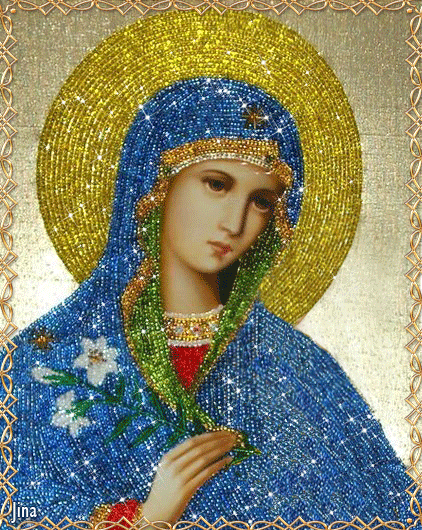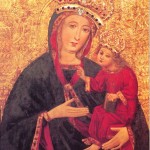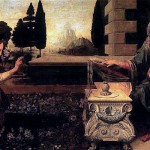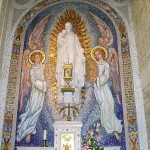Third in a series. Here’s (1) and here’s (2).
3. What Mary Tells Us About Ourselves (i.e. Reflection On The Immaculate Conception)
An objection I encounter over and over again to the dogma of the Immaculate Conception is that it makes Mary unrelateable, and “supernaturalizes” her in an unseemly way. In the arresting, powerful phrase of my late friend and intellectual mentor Vladimir Volkoff, “If Mary is free from all sin, she is no longer my little sister.”
This isn’t just sentiment–and sentiment shouldn’t be discounted–but there is a serious theological question here: Jesus, we are told, is both fully human and fully God. And is it not constitutive of his full humanity that He took his human nature from one who is “just like us”, one of our fallen sisters?
For a while I sort of ignored this criticism and justified the Immaculate Conception to myself on other grounds. Just like there had to be a sinless New Adam to renew humanity, there had to be a New Eve–true enough, but not really responsive to the criticism. And, after all, if Mary shows up over and over again and says “I’m the Immaculate Conception”, well, at some point, the Church has to say “Yes Ma’am!”, even if we don’t quite understand the odds and ends (as, indeed, Mary herself did with her fiat). Again, true (flip, but very true, see the points in my previous post about how Tradition unfolds), but besides the point.
Then, as so often happens, I finally saw what had been in front of my face all along. For the question presupposes something which is just wrong: that to be sinless is not to be “just like us.” The answer, as always, lies in Christ. Any orthodox account of Christ as Mediator says that Christ is our Mediator precisely because He is human, and fully human. If Jesus were not “just like us” in every important way, then He could not be our Mediator (I am violently compressing a lot of complex stuff here, but for these purposes it works). In fact, “classic” orthodox Christianity says that Jesus is not only “just like us” but more like us than even ourselves. Jesus is the authentic human, the fully human, the completely and utterly and thoroughly and absolutely human.
To say that to be immaculate is not to be “just like us” is to affirm that original sin is constitutive of our nature, that it is fundamentally a part of who we are. But the whole point of the Gospel, of the work of Jesus, is to proclaim exactly the opposite. No, Christ says on Easter Morning, sin has been vanquished, it is an illusion, and I, the fully human, have come precisely to bright forth your true selves out of these false selves captive to sin and the flesh.
Yes, absolutely, Jesus “had to” take on his human nature from a sister just like us–and He did. The Immaculate Conception says precisely this to us: your true self is your sinless self, it is your self of the New Creation. Yes, Mary, Immaculate Mary, is your little sister. She has been preserved from sin and glorified and in her is “the dawn of salvation”, in her you see what will happen to all her children of the human race, when you are washed utterly clean by the blood of the lamb of God and glorified into Him. Mary, far from being this barely human, abnormal, white porcelain figure (and this is what we could reproach to popular Marian piety), is instead the fully human, the dawn of New Creation, one daughter of Israel among countless others, but fully indwelled by the Spirit. What Mary tells us about ourselves is that our true selves are our sinless selves.











